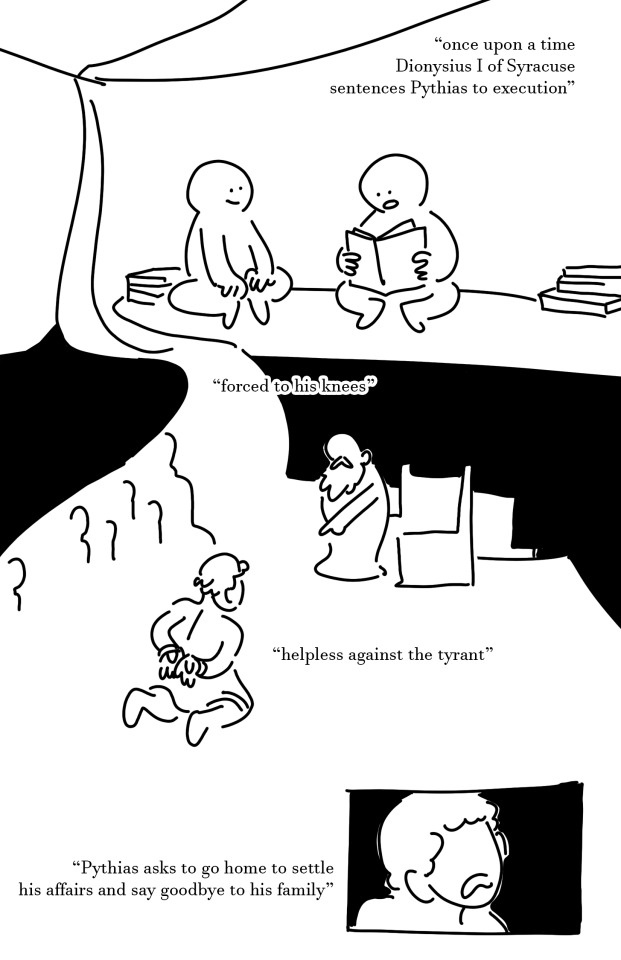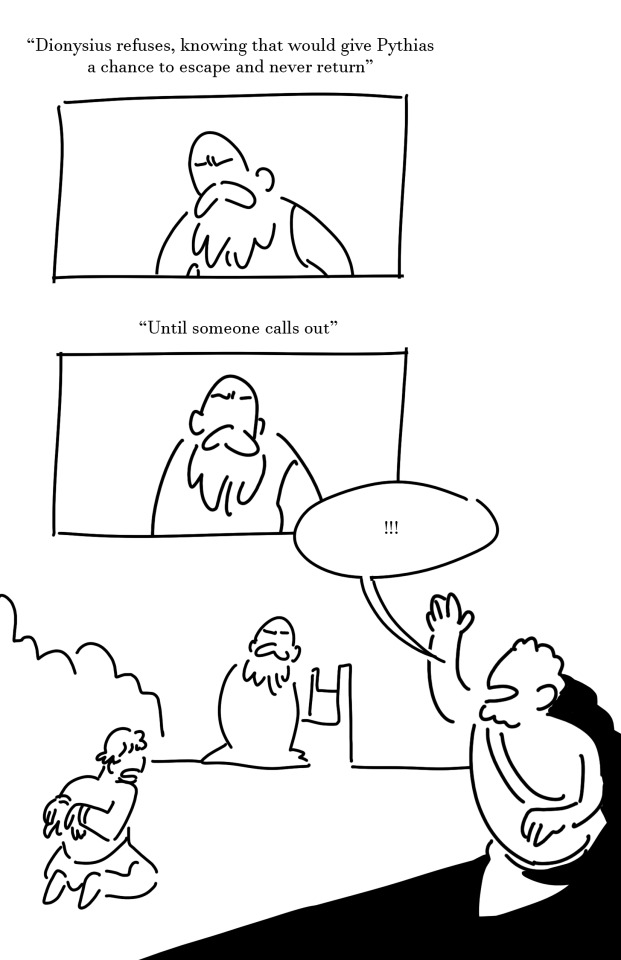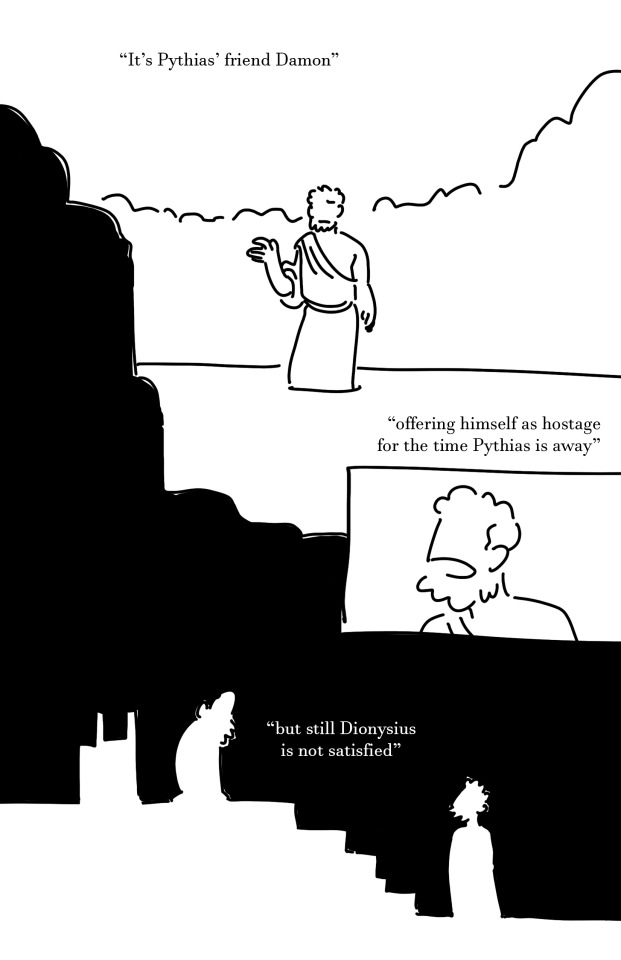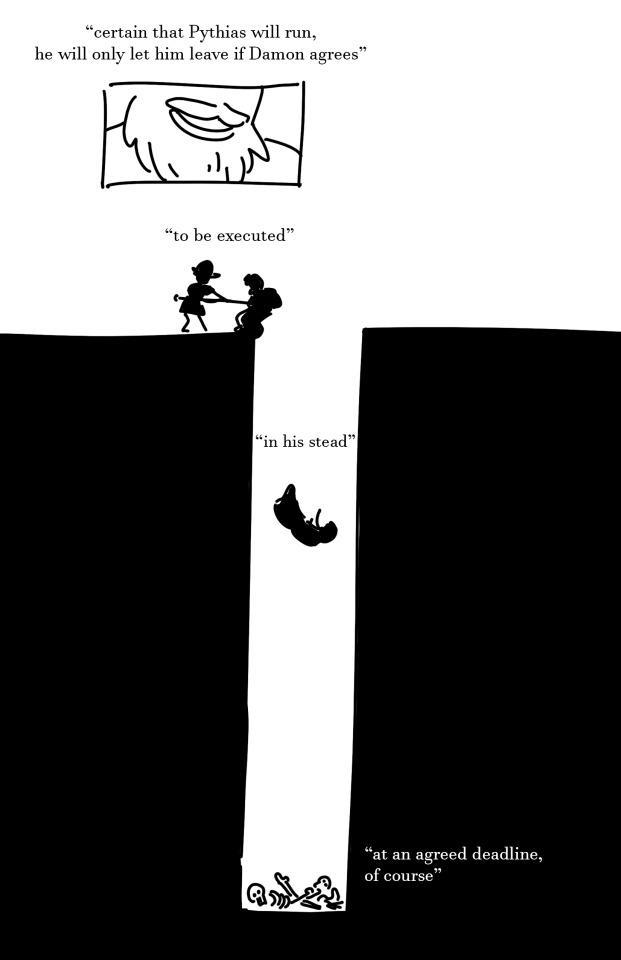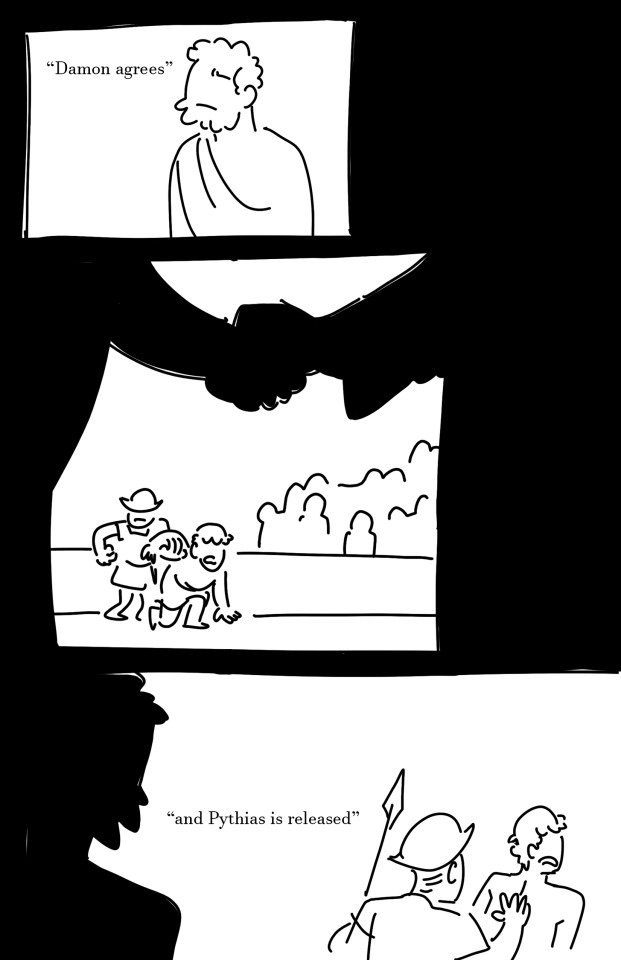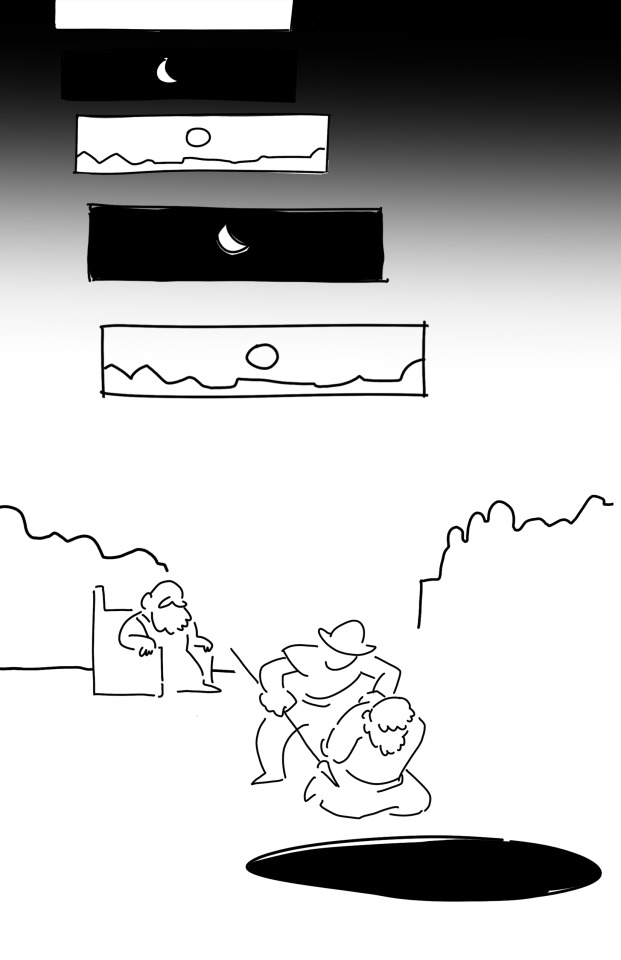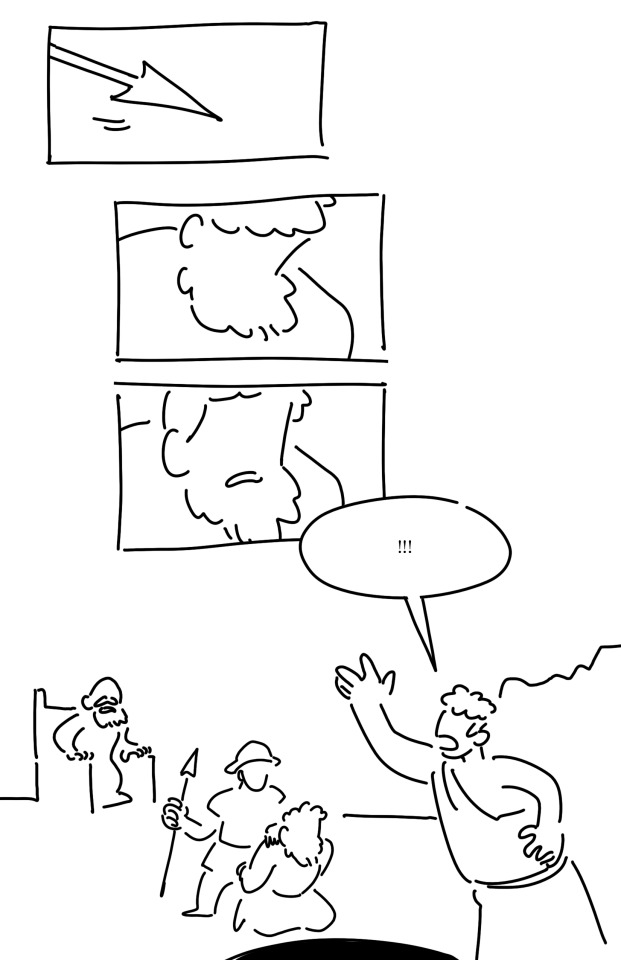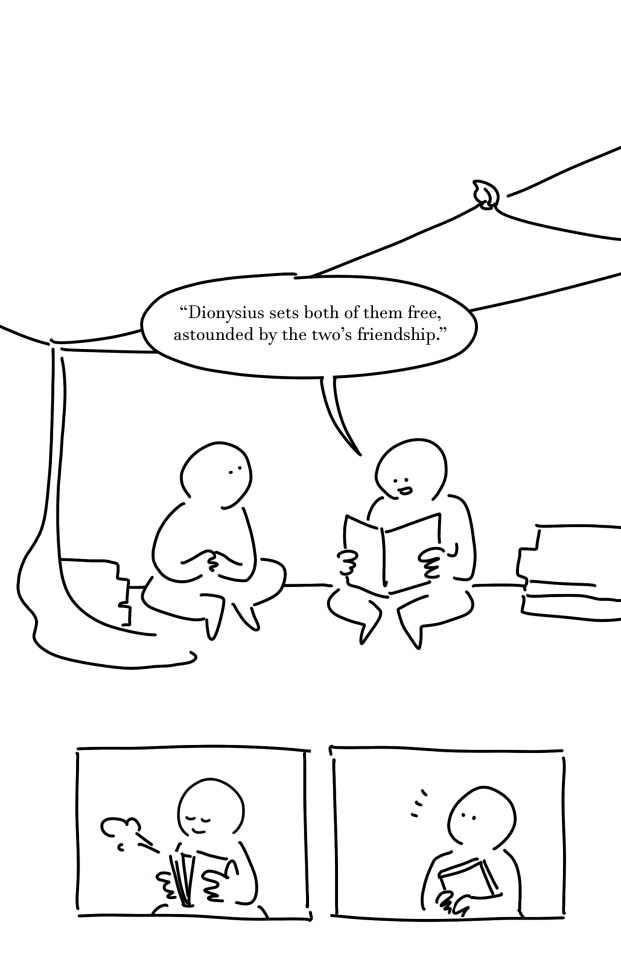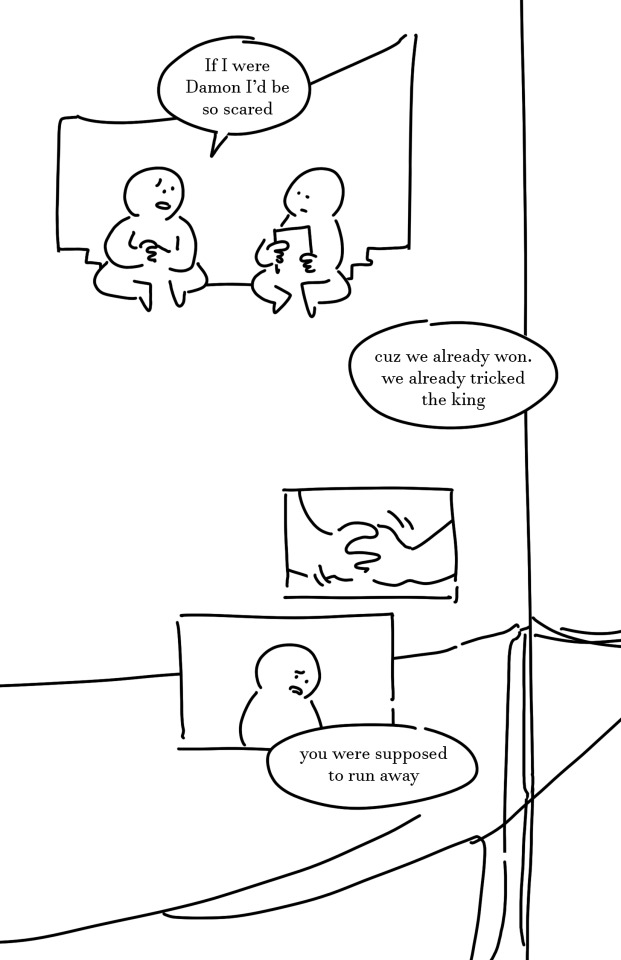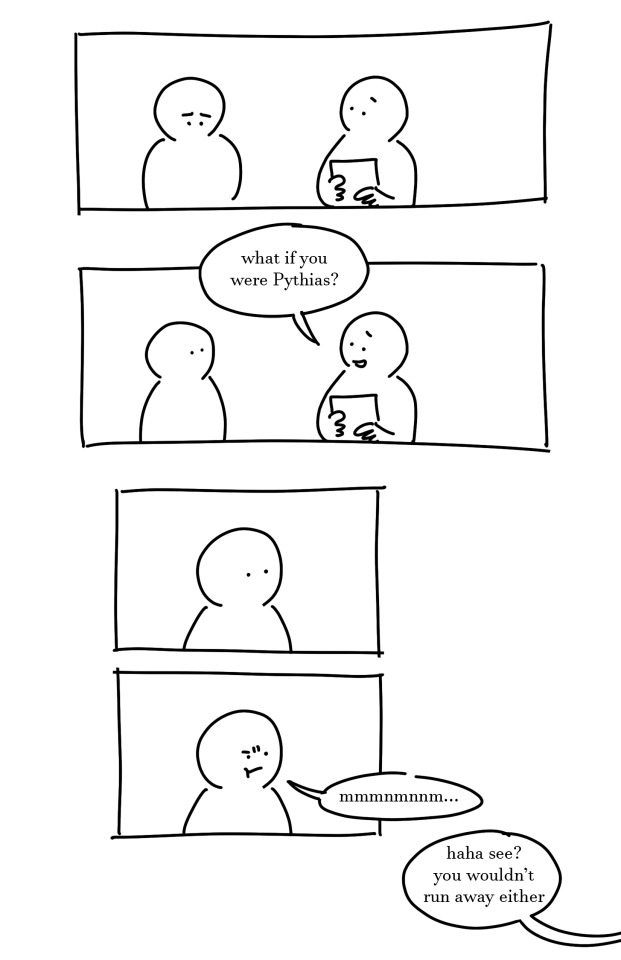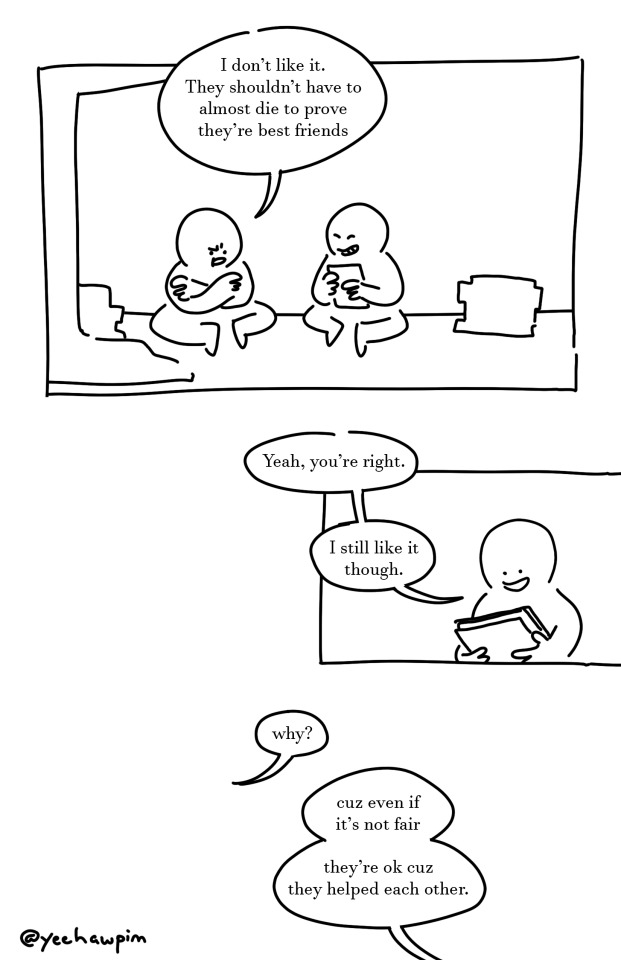Text
I'm getting so sick of major female characters in historical media being incredibly feisty, outspoken and public defenders of women's rights with little to no realistic repercussions. Yes it feels like pandering, yes it's unrealistic and takes me out of the story, yes the dialogue almost always rings false - but beyond all that I think it does such a disservice to the women who lived during those periods. I'm not embarrassed of the women in history who didn't use every chance they had to Stick It To The Man. I'm not ashamed of women who were resigned to or enjoyed their lot in life. They weren't letting the side down by not having and representing modern gender ideals. It says a lot about how you view average ordinary women if the idea of one of your main characters behaving like one makes them seem lame and uninteresting to you.
19K notes
·
View notes
Text
I'm really tired of the "woman sad about her arranged marriage" trope, especially if that woman is royalty.
I am sure that many women across time were sad about their arranged marriages, but I'm sure a lot of others were excited, ambivalent, or resigned. Again, especially if you were royalty! I am sure if you were born a princess, you were trained from birth that your whole purpose in life was to marry someone important to solidify the power of the person on the throne. And honestly, it's an important job, if it wasn't, they wouldn't have tried so hard to do it.
That woman isn't just marrying another king or prince, she's going to be an ambassador of her country. She's supposed to be there promoting good relations. She isn't just a woman being sold off, she has a job! Also, if she is marrying the reigning monarch (or the heir), she may well end up running the country if the king is off at war or he dies when the heir is really young. That happened a lot throughout history! (or maybe she marries the third son and helps him find his way to the throne. Good for her)
It just feels like a modern sentiment being projected back. In Romeo and Juliet, when Juliet's mother first brings up marrying her to Paris, Juliet's basically cool with it and says she'll try to like him. She would have known this was going to happen because that is what rich women do, they marry into another family so their two families can be buddies. What else would she even be expecting?
It wouldn't bother me so much except that it's all we see! Give me a story about a woman who is like, "Cool, I shall give it my all!" Or she's like rolling up her sleeves and planning how she's going to get the court on her side and rule France, power behind the throne style (these women are mostly portrayed as villains, but who is to say the king would do a better job?). And also, have a little faith in women's fathers? You think men in the past didn't occasionally consider the happiness of their daughters? Not even a little bit?
4K notes
·
View notes
Text
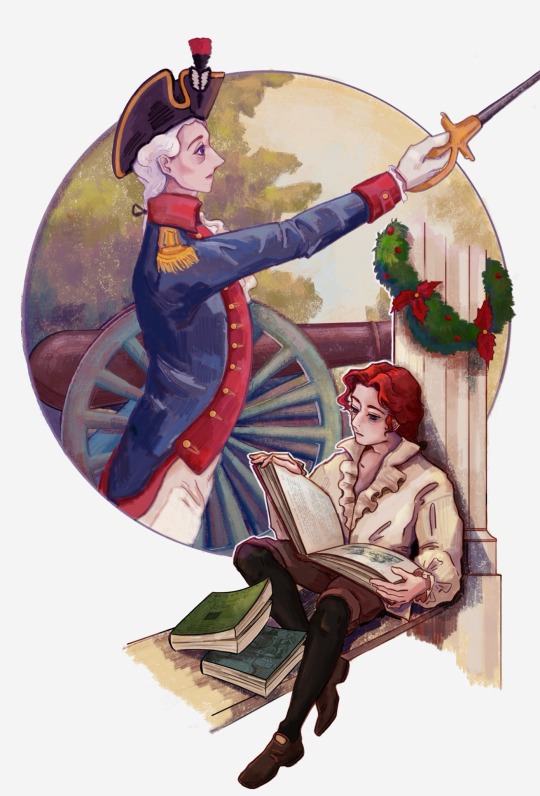
I always love young Alex🥹 your endless ambition
#!!!!!!#ohhhhh alexander...#the way that emotion just bursts back into you after all these years like no time at all hahaha#art
250 notes
·
View notes
Text
Reblog for a bigger sample size.
Say in the tags what you voted for and if you live in or outside of the US
2K notes
·
View notes
Text
Okay, this is pretty incredible. A 3D artist, consulting scholars and archaeologists, worked for a year and a half in Blender to create a reconstruction of pre-Columbian Tenochtitlán, complete with the surrounding landscape. It’s staggeringly beautiful, and—at least to me—gives a wonderful impression of the city as a place where people worked and lived and worshiped
51K notes
·
View notes
Note
you know iraq is one thing, but I find the narrative of the afghanistan war as some horrible crime on the US part really weird. The US invaded the country for a perfectly legitimate reason(taliban's role in facilitating 9/11 attacks) and decided that instead of just launcing a punitive expedition and leaving the mess behind, they'd try to fix the country. there isn't even any kind of sympathetic underdog narrative for the taliban here!
I think the issue is that the American occupation of Afghanistan and the Afghan national army was sufficiently bloody that a significant fraction of the population was like yeah you know what the Taliban aren't so bad actually let's have those guys back, if that's trying to fix the country I'd hate to see trying to break it!
128 notes
·
View notes
Text
personally, i think we should stop having stupid corset discourse on this website and talk more about fashion from the ancient minoan civilization
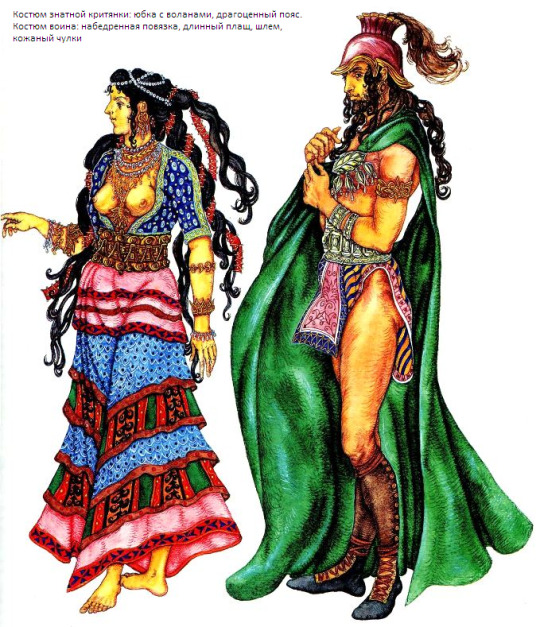

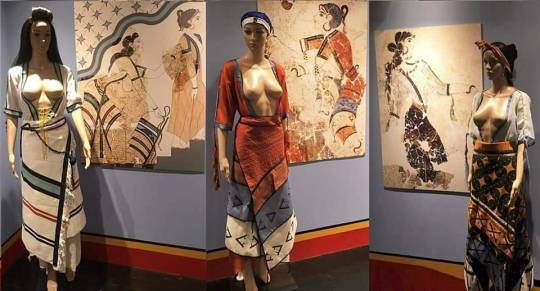
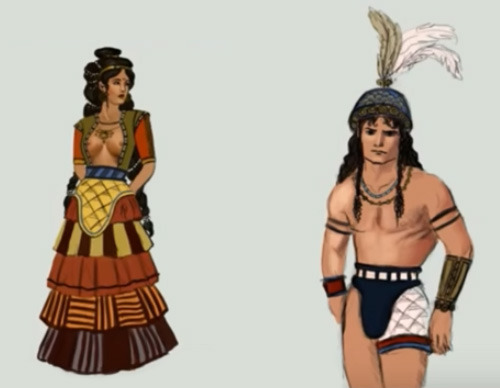
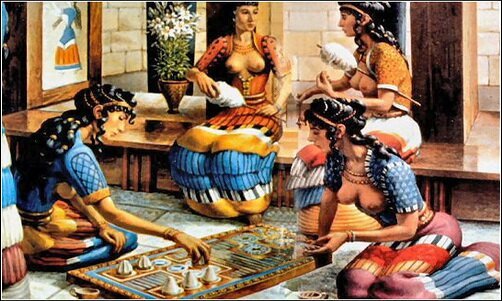
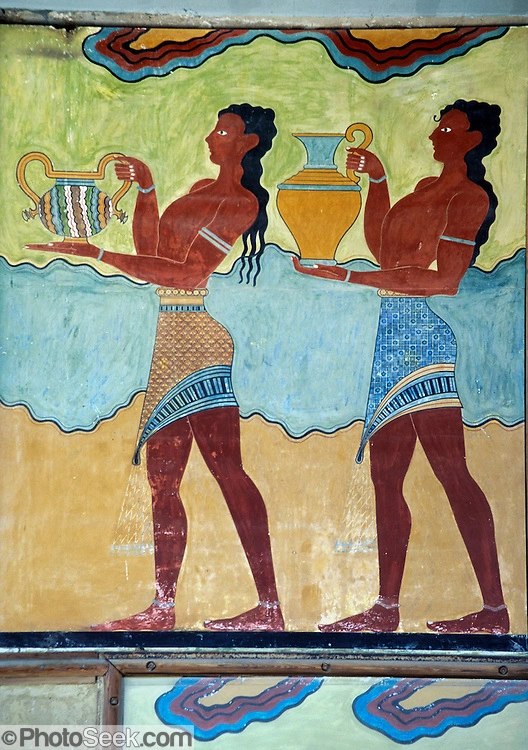
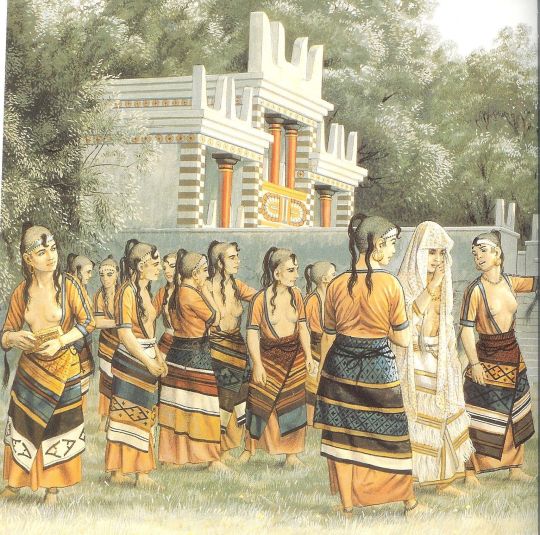

29K notes
·
View notes
Text

suppressing unbecoming fantasies of making everyone who blithely talks like this spend a couple seasons spinning/weaving all their family's clothing and chopping their own firewood
4K notes
·
View notes
Text
Civilization was not developed to produce food for people. It is specifically the organizational processes of limiting access to abundance as a means of social and ecological hegemonic dominance. Hope this helps :)
3K notes
·
View notes
Text
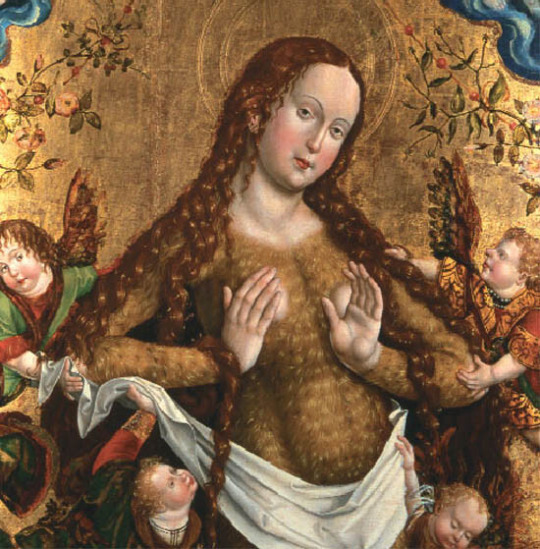
This hairy lady is supposed to be Mary Magdalene. In the 15th and 16th centuries, Mary Magdalene was frequently depicted covered in body hair. You probably have Questions about this, starting with "why" and ending with "wtf". We'll try our best to answer them.
According to legends, after Jesus ascended to heaven, Mary Magdalene went off to the desert to lead a penitent life as an ascetic. She devoted her life to praying and fasting. So devout was she that she ceased to care about worldly things such as clothes, so her clothes fell apart and she was naked. To protect her modesty, according to the story, her hair grew over her body.

Some artists, such as Titian here, interpreted "her hair grew over her body" in a pretty normal way - the hair on Mary Magdalene's head grew long and covered up her nakedness.
However, many other artists favoured a more literal interpretation, and went for a hairy Mary aesthetic.


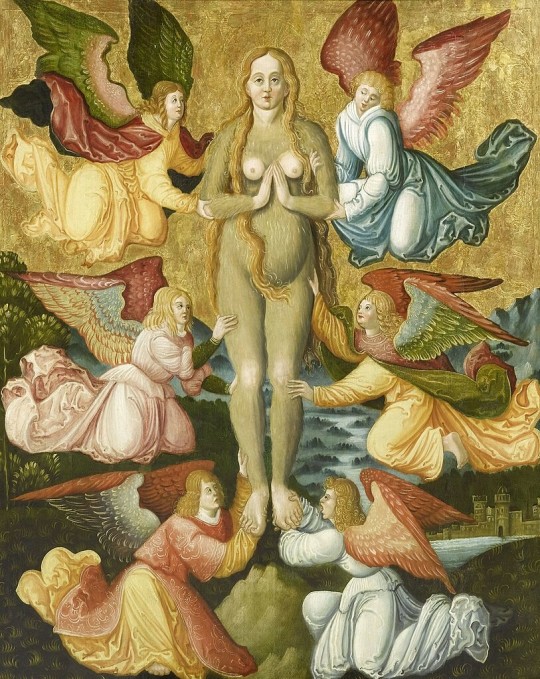
You might have noticed that Mary's boobs are out in most of these depictions, despite the story very clearly specifying the purpose of the hair was to hide her boobs. We don't have an explanation for that. Artists just liked painting titties is the likely reason.
It's likely that the Mary Magdalene hair story isn't even about Mary Magdalene. A very similar story about the 5th century St Mary of Egypt (known as Desert Mother) features a penitent called Mary whose clothes disintegrated in the desert. In Mary of Egypt's story, she spent so long in the desert that she became naked and barely recognisable as human until she was discovered by St Zosimas of Palestine.
Here's a hairy St Mary of Egypt; the figure on the left is St Zosimas of Palestine, who is handing her a cloak to cover herself up.
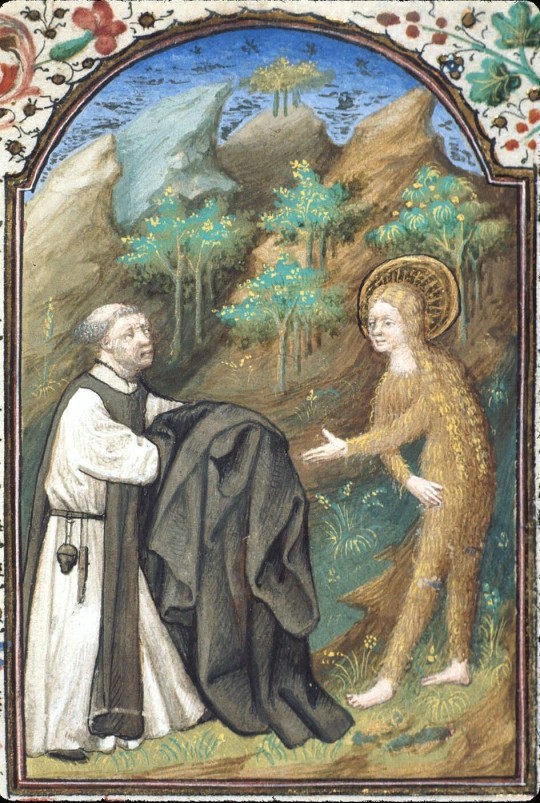
The story probably mutated to being about Mary Magdalene rather than Mary of Egypt because she was a popular figure for sermons and religious texts to use as an example of penitence. Hairy, hairy penitence.
Images:
"Ascension of Mary Magdalene" by Jan Polak, circa 1500.
Penitent Magdalene by Titian, circa 1533, courtesy of Uffizi Gallery.
From the Nuremberg Chronicle, Hartmann Schedel, 1493
At St John's Church, Toruń, Poland, circa 1415.
"The Ascension of St Mary Magdalene" by an unnamed Danube School painter, circa 1510.
Detail of a French miniature, circa 15th century, courtesy of British Library.
449 notes
·
View notes
Text
Posts that I'm cranky about but am not going to hunt down to argue with specifically, #381whatevernumber: that stupid post about Lol There Were No Things To Get Overstimulated About Before Capitalism.
I realize the person making that post is probably young, likely ignorant of literally every part of history they didn't learn in high school, and also lacks imagination, but like. "Lol none of the things that overwhelm me existed before modern times" like ok honey, there's a SLIM chance this is true, but first off I doubt it and second off ok you're statistically unusual because here are some Nearly Guaranteed Autistic Hells of the pre-industrial age:
Being nearly constantly social: I realize that in order to talk about the fact that no, not all disabled/ASD people were instantly killed or totally run out of society, a wrong impression may have been given, as people started to point out that hey, Bob the Super Quiet Weird Shepherd was probably a thing. But this is the big one, and I do in fact want to talk about it.
Firstly, Bob the Super Quiet Weird Shepherd would still either have to live as part of a social network of people or Bob the Shepherd would end up suffering considerably for being more isolated. Remember: there is no one to help you except your neighbours in this world. No. One. There is no "state" anything. Even the support your local formal religious community offered (assuming that you lived in a society that had that kind of thing, which is a large assumption, because not all did) charitable support, you were still socially part of the group to belong to it, and if you weren't good at that, unless you had a REALLY good local religious authority with a significant streak of altruism, they probably forgot about you too.
Furthermore we're pre-capitalism, right? That means there's no abstract COMMERCIAL relationships either: even if you are paying someone to do something, it's going to be a local, it's going to be from a member of a very limited community that you live in, and so it's going to be involved either Being Socially Connected, or being Judged for Not Being Social Right.
Secondly even Bob the Super Quiet Weird Shepherd would have to do his work with other humans at least half of the time, because even shepherding is a multi-person job in a pre-modern context. And Bob will be expected to attend most community gatherings, community holidays, community activities, and so on, and if he doesn't he'll end up being That Weird Guy We All Think Is Creepy.
You remember all those horror stories all about Old Man So and So who lives alone in his horrible creepy house and turns out to be a serial killer? That kind of story has a long, long legacy. There's a reason the Horrible Witch's house is slightly outside the community. Why do you want to avoid people constantly if you don't want to hide?
Now are there ways to mediate that which may be available, depending on your family, who you happen to be friends with, and so on? Yeah, sure. But those are genuinely very hit or miss and they're NOT guaranteed.
And that's all assuming, of course, that you have access to a role in your community that allows that shit, because depending on your gender, your abilities, your inherited place and so on, you might not! In a European pre-industrial context, Autistic Meg as a woman is highly likely to be expected to take part in work that is hyper social: that involves a large number of women working together. If she actively avoids it she is very likely to be judged as Aloof or Weird! And so on.
And all of THAT is assuming you can mask well enough that the only thing people notice about you is "you're very quiet and withdrawn". Gods forbid you have the bad luck to have a trait, a behaviour, a stim, whatever, that people in your community judge to be "creepy" or otherwise offensive.
Which brings us to . . .
Being a bad child: There are very few places, historically, that have child-rearing practices that were not - well, frankly, that weren't pretty awful for ALL children really but were particularly not awful for ASD kids of any type. As with all children you MIGHT be lucky enough to have a specific primary caregiver who intuitively and contra to prevailing wisdom figured out how to avoid fucking you up royally, but your odds were not good.
The main virtue of children in most major cultures has historically been obedience. And it has historically been entirely appropriate to achieve obedience by physical discipline if it isn't given immediately. "Spare the rod and spoil the child" is not in fact something capitalism made up, nor any of the other attitudes towards control of children and "discipline". This does not mean people of the past hated their children or were inherently cruel; it does mean that their understanding of what would lead to a child having a good life as an adult was predicated around Making Sure Kids Did What They Were Told.
If you think ABA is child abuse? We-ell.
Speaking of which, what kinds of things might lead a child in a pre-capitalist society to freak out and need "discipline"? Let's talk about . . .
Bad textures in textiles: All your clothing - all of it - is now natural fibres and materials created on hand-looms or other by-hand methods (because lbr I'm assuming most of us are peasants or otherwise "common" people, as the vast majority of people in history have been). Depending on where you are these may include:
- hand-woven linen
- hand-woven cotton (this will not be particularly fine)
- wool
- leather
- woven grass
- woven roots
- woven bark
- fur
Do you hate the texture of jeans? Too bad! Do you hate the texture of linen table cloths? Well that's your underwear now. Heavy wool make you want to die? Well I guess you're freezing to death. And so on. I know autistics who find the texture of fur to be worse than anything else in the world.
These textiles will also make up your bedding. Sleeping on a wool blanket sound like a recipe for insomnia? Sucks to be you!
Bad textures in food: You might luck out: it might be that whatever the Staple Food of your community is, it'll be something that you like and you can just same-food yourself thru your whole life.
But what if it's not? What if you're the autie who HATES the texture of porridge? Well sucks to be you if you were born in, say, pre-modern England because pottage (stew with grains in it - basically savoury porridge) is probably going to be your staple for most of your life. Hate rice, like my one friend? God help you being born anywhere rice is the staple! Find layers and layers of seasoning and spices makes your mouth "burny"? God help you if you live in South Asia! And since food is going to be very tight, it's really unlikely your caregivers are going to be super interested in making a whole new dish just for you, not because they hate you, but because they can't waste the food. Besides: you have to learn to suck it up and deal with it, because life is full of hardships, isn't it? (No, that mentality did NOT arise with capitalism either, I promise.)
The above are, sadly, also reasons a lot of autie kids would simply not have reached adulthood - not because of malice, but because remember, we're in a world of 50% child mortality under ten years old. That means 50% of children simply will not make it to the age of ten. Yes, even in hunter-gatherer societies; this mortality rate has to do with the fragility of babies without knowledge of a LOT OF REALLY COMPLEX MEDICAL SHIT, not anything else.
A lot of that fragility comes from stuff like not being able to get enough nutrition into a child for one reason or another, as well as allllll the childhood illnesses we nowadays basically don't have to deal with. And not getting enough nutrition into a child also makes them more vulnerable to the above anyway. So imagine even a very loving, well-intentioned parent who's confronted with a child who just won't willingly eat most of the foods that are normal for her culture? She's nursed this baby, of course, but even though he's gotten through to toddling without getting sick, now he needs more than just her milk, but he spits out rice and lentils and vegetables and she's tried every food he has access to and he only grudgingly eats a few mouthfuls when he's very very hungry. How much thriving do you think that kid'll do?
Or maybe she finds he'll eat one kind of rice when it's cooked into mush, but that's it. What does she do when he develops diseases related to vitamin deficiencies? It's not like she even knows what those are, because none of that shit will be figured out until post-industrial medicine. She might know that traditionally if your kid's teeth aren't working right or they show other signs of scurvy you're supposed to make them eat some of the local fruit, but her child refuses to eat fruit, hates fruit (insert all kindsa tiktoks from Fruit Loathing Autistics here!), and won't take it. What's she gonna do?
You have a 50% chance of not surviving childhood period, and now your chances have gone down hard.
Now the fact is most verbal autistic kids - what was traditionally called "high functioning", though we do challenge that for a reason - can be bullied and shouted and forced into eating what's put in front of them long enough to reach puberty. But that's still consigning one's entire childhood to being bullied into eating food that makes you miserable, which is kinda a facet of Autistic Hell.
Bad smells: No, there won't be a lot of artificial perfumes around of the kind that can be sensory hell NOW. But that doesn't mean you'll live in a world free of Bad, Overwhelming Odours. Your soap won't smell like artificial jasmine but it will smell like Harsh Soap, and making it will involve a LOT of bad smells, and you'll be making it at home. Woodsmoke will be a constant; it'll be so constant it'll be one of those sensory things you may never realize was a sensory problem, but is still there, ticking away at your cope.
Manure, human shit, human body odours and urine will also likely join those; and where your allistic family and neighbours don't LIKE that smell, they'll resort to equally strong-smelling (natural! But strong smelling) things to counteract it.
Sensory Hells of the Natural World: Wind. Rain. Temperature. Animals - ask someone who's actually lived in an isolated rural context but has Croaky, Yelling Frogs how that works out when you're sensitive to noises. Insects. Roosters. Other domestic animals. The people who also live in your house or village talking constantly.
Personal Grooming: Most places in the world have, traditionally, had very strictly defined norms for how people are Allowed to wear their hair and in the case of those who have it facial hair, as well as other body hair. Actually much, much stricter than we have now, as it happens. Are you, for instance, a female identified person who hates having hair longer than at best a pixie cut and really hates having to braid or otherwise do it up, and also hates having to wear hats/etc? Well sucks to be you in a HUGE number of cultures, because women are expected to a) have long hair, b) have that hair groomed in an appropriate way, and then c) cover it.
Are you an autistic who finds their body-hair adds to their sensory hell, like me? Too bad! In a vast number of places being able to remove it won't even really be an option, and it especially won't be without basically risking using a clumsy straight-razor and risking cuts (and thus infections) pretty constantly. And that's assuming anyone ever thinks of it, including you, because it's just not a thing we do here.
As a beard-having person, do you hate shaving/hate having a beard? Well depending on your time and place, going against the norm of whichever direction your culture goes would very plausibly make you a target.
And that's just what I can think of off the top of my head on a Saturday afternoon with my cat yelling at me.
Are there certainly specific challenges that modern industrialized society can present to those of us with autism? Yes, of course there are. Some of them even ARE unique to capitalism, but that doesn't mean that a non-capitalist society will INHERENTLY lack them, and a lot of the shit we face is actually completely orthogonal to the economic system we live in, because NOT EVERYTHING IS ACTUALLY ABOUT ECONOMIC SYSTEMS FOR THE LOVE OF FUCK.
(And "capitalism" doesn't just mean "any aspect of society I think is bad", jesus christ.)
Am I on a "stop romanticizing a past that didn't exist" kick right now? Yes, obviously.
990 notes
·
View notes
Video
cr: 百变花央
94K notes
·
View notes
Text
“At the time when women in China were married, they would have their hair combed in a different way to signal to society and any men interested in courting them that they were not available. While the terms we use now for asexual or aromantic did not exist yet, the Golden Orchid societies had a system set up for women who wanted to avoid both marriage options and any romantic or sexual partnership by introducing “self-combing women.” These women would comb their hair into the style of a woman that was married and often even had a ceremony to celebrate such a decision, similar to a marriage ceremony.”
— Laura Mills (The Golden Orchid)
10K notes
·
View notes
Text
I think a some of the confusion in regards to 18th century sexuality labels comes from a misunderstanding of the linguistics. While its true that homosexual is something that you are and sodomy is something that you do, this is a sort of odd comparison as sodomite is something that you are. Molly, tommy, sapphist, lesbian, tribade are all things that you are. It would be more accurate to compare homosexuality to sodomy. Homosexuality is something you experience something thats innate while sodomy is something you do. This is the key distinction with how sexuality was labeled in the 18th century in comparison to how its labeled now. Our labels are attraction based while 18th century labels were action based. But this myth that sodomy was just an action and that it didn’t define you in society eyes is inaccurate. The court had no problem labelling you a sodomite as they sentenced you to death.
Foucault famously wrote:
Homosexuality appeared as one of the forms of sexuality when it was transposed from the practice of sodomy onto a kind of interior androgyny, a hermaphrodism of the soul. The sodomite had been a temporary aberration; the homosexual was now a species.
(Michel Foucault, The History of Sexuality)
Foucault dates this shift to 1870. Foucault is objectively wrong. In fact in 1734 Dutch sodomites were described as “hermaphrodites in their minds”. (Rictor Norton, A Critique of Social Constructionism and Postmodern Queer Theory) The effeminate Lord Hervey was perceived by contemporaries as being of a “Third Sex”. Lady Mary Wortley Montagu observed that the world “consists of men, women, and Harveys”. (Rictor Norton, Mother Clap’s Molly House, p146) And in 1750 George Arnaud characterises “τριβzδεσ” (τριβάδες I assume?) such as Sappho and Bassa in Martial’s epigram as a “species” of “hermaphrodites” who could pass “for virtuous for some time, because she had never ventured her chastity with the men.” (A Dissertation on Hermaphrodites, p18)
Sodomites and tribades were conceptualised as “hermaphrodites in their minds” a “Third Sex” and a “species” more than a 100 years before the coining of the word homosexual.
Just because the 18th century labels were action based rather than attraction based doesn’t mean that 18th century people didn’t understand sexual attraction. When Church commented that Alexander Hamilton had “weaknesses not confined to the female sex” he was implying that Hamilton was sexually attracted to both men and women. (Charles Adams to John Adams, 31 January 1799) When Madame d’Orleans said of the men at the court of Louis XIV “some prefer women, some like both men and women, some prefer men,” is she not talking of sexual attraction? She even seemingly acknowledges asexuality commenting that “some have little interest in sex at all”. (Rictor Norton, A Critique of Social Constructionism and Postmodern Queer Theory)
And there are examples of pre-1870 queer people themselves understanding their sexuality as something innate, inborn and natural to them. Gerrit van Amerongen stated at his 1776 sodomy trial that men who had sex with men were “born with it and they can be as amorous to each other as man and wife can be.” Anne Lister in 1823 told her female lover “my conduct & feelings being surely natural to me inasmuch as they were not taught, not fictitious but instinctive”. (Anna Clark, The Chevalier d’Eon, Rousseau, and New Ideas of Gender, Sex and the Self in the Late Eighteenth Century) And the Chevalière d’Eon in 1771 talks of “the natural lack of passion in my temperament, which has prevented my engaging in amorous intrigues”. (D’Eon to the Comte de Broglie, 7 May 1771. Translated by Alfred Rieu, D'Eon de Beaumont, His Life and Times, p141)
312 notes
·
View notes
Text
Like sorry but anyone who thinks that dropping labels like 'homosexual' will somehow lead to a freer, more widely accepting and tolerant framework NEEDS to spend ten minutes talking to a fundamentalist Christian who will 100% agree that those terms are dangerously harmful because there exist only 'normal people' and 'unfortunates corrupted by degenerate sexual acts.'
Like nah sometimes the labels exist not to constrain people's identities but to say 'hey here is an equally valid sort of way people might theoretically be. There are probably many more!'
Sorry but my view on applying labels to historical queer people that it's still incredibly goddamn stupid to act like terms such as 'asexual' are concepts which are so widespread and integral to modern day people that we actively need to challenge our assumption that people like that exist instead of THE EXACT OPPOSITE.
Also 'people aren't queer, acts are queer' is ALSO a modern-day understanding of queerness which was literally the most popular understanding in the late 20th century and still to this day in many conservative communities now. So when are we supposed to question our innate assumption of this framework, as fed to us (often deliberately, for political purposes) by authorities and religious figures since we were young?
#queer history#like fucking as if people will acknowledge that anything remotely like asexuality is possible if we didnt have a word for it lmfao#we'd just be sick individuals who need to be cured by force if necessary for our own good#its telling that these 'we cant apply labels to the past' ppl ALWAYS assume either something like straightness or smething like bisexuality#and asexuals and aromantics just have to get fucked once again
67 notes
·
View notes
Text
Sorry but my view on applying labels to historical queer people that it's still incredibly goddamn stupid to act like terms such as 'asexual' are concepts which are so widespread and integral to modern day people that we actively need to challenge our assumption that people like that exist instead of THE EXACT OPPOSITE.
Also 'people aren't queer, acts are queer' is ALSO a modern-day understanding of queerness which was literally the most popular understanding in the late 20th century and still to this day in many conservative communities now. So when are we supposed to question our innate assumption of this framework, as fed to us (often deliberately, for political purposes) by authorities and religious figures since we were young?
67 notes
·
View notes
